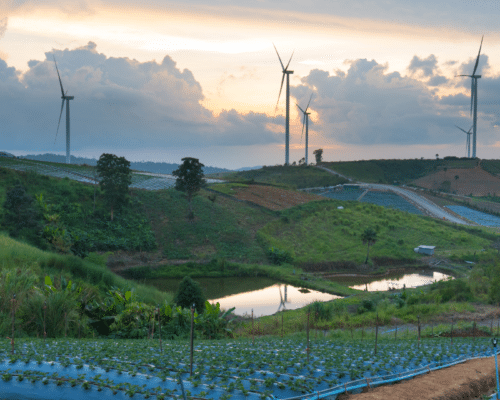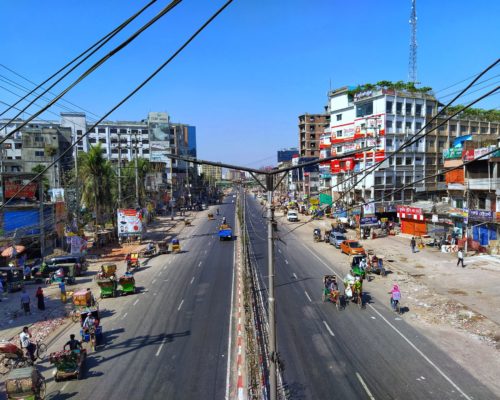Renewable Energy Entrepreneurs – Challenges & Opportunities
Credit: SoFi
22 April 2021 – by Eric Koons Comments (0)
Energy demand is growing in Asia and the public sentiment towards conventional energy sources is changing. This is forming the perfect storm for lenders to increase financing for renewable energy projects and renewable energy entrepreneurs to capitalize on the demand.
The benefits for large renewable energy projects are massive, with plentiful resources and increasing government support. Along with entrepreneurial opportunities the opportunity is also available for local small and medium-sized enterprises (SMEs). Unlike large corporations, SMEs are positioned to capitalize on and meet the unique requirements of individual communities. This allows them to create more cost and energy efficient projects on local and regional scales. Once up and running, they can often compete with large corporations within their region.
Benefits of Renewable Energy for Entrepreneurs
SMEs that focus on developing renewable energy projects not only have the opportunity for financial gain, but also to create a host of positive societal impacts. By supplying communities with sustainable and affordable clean energy solutions, SMEs and social enterprises can simultaneously address the key drivers of poverty while reducing carbon emissions. These societal and economic gains are created by a combination of different factors including:
- Creating local renewable energy jobs
- Reducing health risks, costs, and burdens
- Reducing energy costs
- Improving energy resilience

Reduced energy costs and job creation provide more economic stimulus. Over time this snowballs into a higher standard of living, more opportunity, and further economic growth. Reduced health issues add to an improved standard of living, while reducing the economic burden on the community. Furthermore, increased energy resilience allows for improved efficiency and makes regions more attractive to internal and external investment.
Challenges For Small Green Businesses
While the benefits for renewable energy entrepreneur is large, there are many hurdles to success. These challenges can be broken down into five categories:
- Financing = local banks and private equity funds often only provide high interest, short payback period loans. These are typically not tailored to the local market and, specifically, not for the renewable energy industry. Renewable energy projects require large initial investments that are often not profitable for multiple decades.
- Underdeveloped Infrastructure and Logistics = This makes it challenging to build projects and tie into existing energy transmission systems.
- Power of Incumbents = Often large private or national firms have been providing energy to a region for decades. For example, in China 90% of all renewable energy generation capacity is state-owned.
- Lack of Government Support = Governments often overlook the small, local SMEs in favor of large businesses that will invest millions of dollars in multiple projects throughout the country.
- Unskilled Labor = Local labor forces may not be trained or experience in renewable energy technologies. Training costs time and money, making projects more expensive.
Ultimately, finance is the main roadblock for renewable energy entrepreneurs. A lack of access to reasonable funding, and minimal government support for SMEs, makes overcoming any remaining challenges a difficult undertaking.

Renewable Energy Financing Options
There are solutions to improve the feasibility of renewable energy projects for SMEs. Yet most of them lie with lending groups and government agencies. The support of these groups and the implementation of renewable energy friendly lending programs is crucial in the coming years. Some lenders are already making efforts to meet these needs and have developed programs like:
- Patient Capital = Long term debt or equity with below market rate interest rates. This allows renewable energy entrepreneurs to take less risky and long-term payback schemes that align with their business.
- Technical Assistance = Government or private funded training/support to assist renewable energy entrepreneurs navigate the financial landscape of their country.
- Output-Based Grants = Renewable energy entrepreneurs receive funding based on completing milestones. This creates less risk for lenders as apposed to providing a single lump sum loan.

Private Investment That Supports Renewable & Clean Energy Entrepreneurs
One group that is leading the way in this field is Uberis Capital. Uberis Capital is an impact investment fund that provides patient capital and technical assistance to renewable energy SMEs throughout Southeast Asia. They have reported that borrowers pay back their loans at high rates and are planning to expand their investment portfolio to include a wider variety of SMEs. This has attracted more funding from European investors and significantly more investment opportunities.

The Role of Small Businesses in Asia’s Green Future
Up to this point, renewable energy entrepreneurs and SMEs have been largely overlooked by governments and lending groups. They represent a significant group that will help regions, countries, and societies meet renewable energy goals and provide a higher standard of living for community members. Additionally, local renewable energy projects provide substantial economic stimulus in regions that may lack other natural resources. It is imperative for governments and lending groups to break down the barriers that face these groups. SMEs and Renewable Energy entrepreneurs need Asian financial institutions to work with them to take responsibility for a green energy future.

by Eric Koons
Eric is a passionate environmental advocate that believes renewable energy is a key piece in meeting the world’s growing energy demands. He received an environmental science degree from the University of California and has worked to promote environmentally and socially sustainable practices since. Eric’s expertise extends across the environmental field, yet he maintains a strong focus on renewable energy. His work has been featured by leading environmental organizations, such as World Resources Institute and Hitachi ABB Power Grids.
Read more


